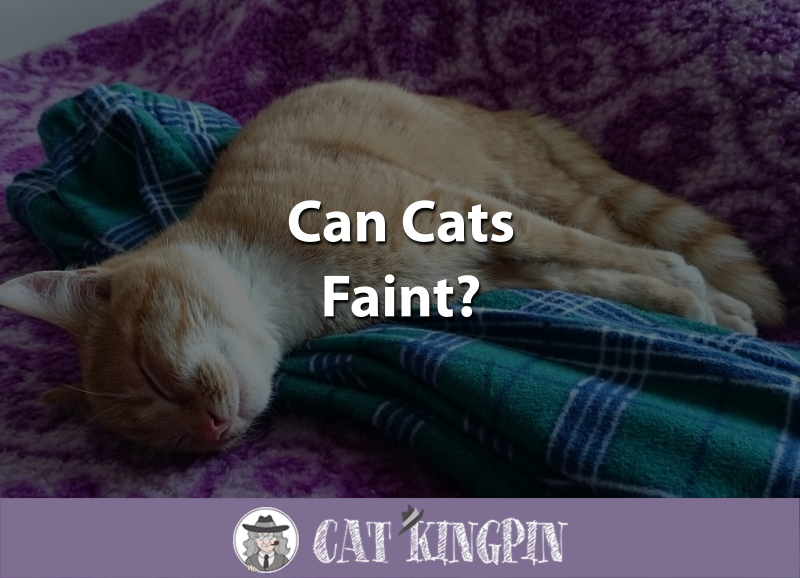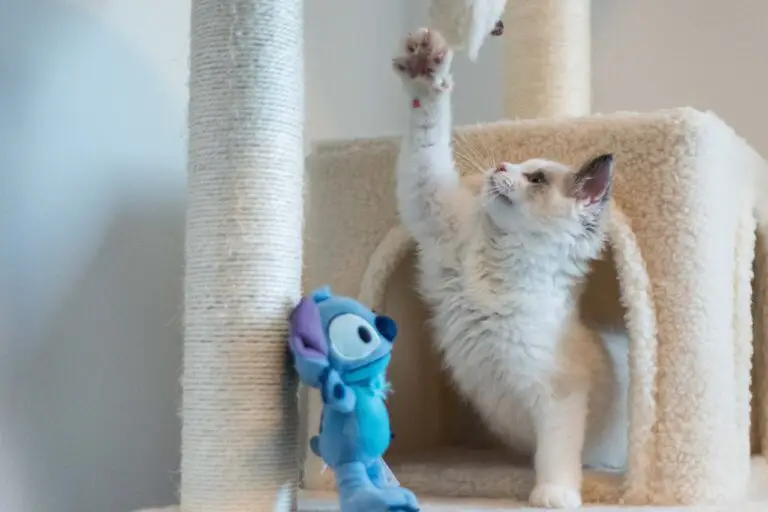Can Cats Faint?
While we do our best to make sure our feline friends are healthy, happy, and safe, sometimes an illness can creep up on us.
While most of the time our cats won’t come down with anything more serious than a cold, sometimes more serious illnesses can occur.
Cats are very good at hiding their illnesses. This is a defensive mechanism that developed in the wild to hide their vulnerability from possible predators. So while it may be difficult for us to determine if our cat is feeling unwell, there are some symptoms that will be so obvious that we won’t able to ignore them.
Fainting is one of those symptoms. While it’s unusual, fainting is a very serious sign of illness in cats and should never be ignored.
In this article we’ll cover the following:
- Can Cats Faint?
- Can Kittens Faint?
- Causes of Fainting in Cats
- Causes of Fainting in Kittens
- What to Do if Your Cat Faints
Can Cats Faint?
Yes, cats can absolutely faint. While fainting in cats isn’t always a sign that something catastrophic is happening, it’s a very alarming sign of illness that you should take very seriously.
Medically speaking, fainting is called “syncope” and is characterized by a temporary loss of consciousness. While it’s relatively rare, some breeds of cat are more prone to syncope than others.
For example, Maine Coons and Ragdoll cats are known for being susceptible to a disease called “hypertrophic cardiomyopathy,” which is a type of heart disease that can cause fainting (and is the most common heart disease in cats).
The dangerous thing about fainting is that it may be difficult to catch. If your cat is having fainting spells when you aren’t home to see them, you may miss the signs.
It can also be difficult to ascertain whether your cat has actually fainted or is experiencing some other type of medical emergency. If your cat momentarily loses consciousness it may also be indicative of a seizure or some other disorder.
In either case, you need to bring your cat to the vet to figure out what the underlying cause is and get them the treatment they need.
While it looks like this cat fainted after inhaling some paint fumes, the fact that he got right back up is a pretty good indication that he was simply dizzy for a moment!
Can Kittens Faint?
Kittens can also faint, and it’s very serious. If your kitten faints, even just once, you should bring them to the veterinarian immediately for a thorough checkup.
Fainting is serious in adult cats but can be even more devastating for kittens. Because they are still growing and are more susceptible to illnesses (including neurological ones), a fainting spell can be devastating to your kitten’s health.
If your kitten faints, don’t wait! Bring them to the vet immediately.
Causes of Fainting in Cats
Cats can faint for a variety of reasons, all of which are relatively serious.
Some of the most common reasons for fainting in cats are as follows:
- Heart disease (which may be brought on by a variety of factors, including age, breed, and underlying conditions)
- Extreme excitement
- Low calcium or sodium levels in the blood
- Blood disorders
- Hypoglycemia
- Tumors (usually of the heart or surrounding area)
- Emotional distress/fear
- Extreme heat (or illnesses which inhibit your cat’s ability to regulate their body temperature)
- As a side effect of some veterinary drugs
Fainting in cats is almost always a sign of an underlying condition, and rarely presents on it’s own. Determining the underlying cause of a fainting episode is extremely important, which is why you should immediately bring your cat to the vet.
Take note if your cat also is exhibiting other symptoms of illness. Some symptoms that often accompany fainting in cats are:
- Coughing (not yawning)
- Urinating
- Soiling themselves
- Excessive swallowing
Causes of Fainting in Kittens
The causes of fainting in kittens are similar to those found in adult cats and can include a variety of genetic illnesses, blood disorders, hypoglycemia, and emotional distress.
It is extremely important to bring your kitten to the vet if they faint. It is very difficult, if not impossible, to determine the cause of a fainting spell without the assistance of a veterinarian.
These kittens have a neurological disorder that causes them to faint when they are startled. Thankfully, this disorder is extremely rare.
What to Do if Your Cat Faints
If your cat faints, the first thing you should do is take them to the vet.
Trying to determine the cause without the help of your veterinarian may put your cat in very serious danger.
After a fainting spell, your cat may be agitated or afraid. The best way to transport them to the vet is in a safe, enclosed cat carrier. Keeping them safe, warm, and feeling contained is important when bringing your cat to the vet following an emergency.
You should already have a cat carrier for these instances, and hopefully, your cat is already used to being carried in it. A washable and private carrier, such as the PetLuv Happy Cat carrier, will make your cat feel safe and keep them calm on the way to the vet.
So, can cats faint?
Unfortunately, yes. Cats can faint. While it’s relatively unusual, fainting in cats is almost always a sign that something is not right.
Bringing your cat to the vet is the first thing you should do. Fainting almost always constitutes an emergency, and this is not the time to “wait and see” if your cat feels better on their own.
If your cat is feeling sick, they may hide (which will make it difficult for you to monitor them). That’s why it’s important to take action immediately and not wait to bring them to the vet.
If your cat has a fainting spell, immediately put them into a safe and contained cat carrier, such as the PetLuv Happy Cat carrier, and bring them to the vet. Keeping them warm and safe in a private space is a good way to keep their stress level down.
Once at the vet, make sure to describe the situation and the circumstances that surrounded the fainting episode in as much detail as you can. The more information you give your vet, the easier it will be to correctly diagnose your feline friend.






